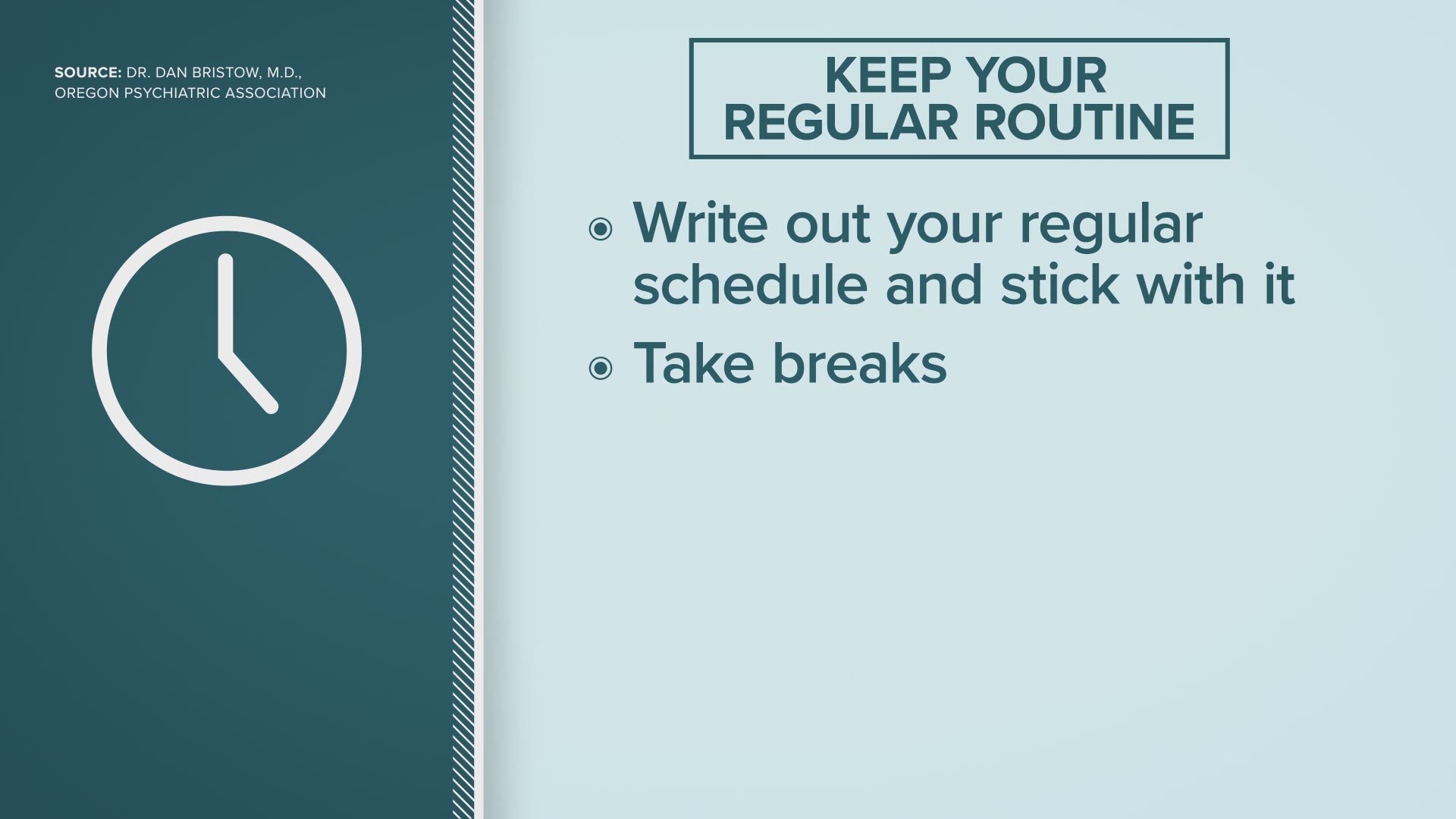Health officials across the country are asking Americans to practice social distancing to help slow the spread of the coronavirus (COVID-19).
Social distancing involves increasing the physical space between people to try to avoid spreading any illness to those who are vulnerable. It can mean working from home, closing schools or switching to online learning, and even canceling big events like concerts or sporting events to cut down on an illness spreading in big crowds.
But how can people practice social distancing when they need to go to the store for supplies or run an errand? The Tacoma-Pierce County Health Department shared a few tips to help keep people safe when they have to leave their homes during the coronavirus outbreak.
The first tip is to make a plan and stick to it. The health department said families should limit trips outside of the home and wait as long as possible before going to a store. Making a list of needed items and sticking to it can help cut down on the amount of time shopping and help slow the spread of the virus. Experts also advise only sending one person to the store and not stopping to chat if you see a friend while out.
Another thing you should do is avoid gathering in groups and only touch items you intend to buy at the store. You should also stay at least the distance of a shopping cart away from people while waiting in the checkout line.
People over the age of 60 or those with underlying medical conditions are more at risk from COVID-19 than people with healthy immune systems. If you’re healthy and going to the store, the department said being a good neighbor to high-risk individuals and asking if they need anything can be very helpful during these times. Reach out to family, friends, and neighbors to see if they need help.
Some grocery stores have also adjusted their hours to accommodate senior shoppers and shoppers in the high-risk category, such as pregnant women and people with compromised immune systems.
Albertsons and Whole Foods announced this week they are setting aside an hour in the mornings before opening to accommodate those shoppers. You can learn more on their websites here and here.
Most importantly, if you can skip the trip out, stay home. Staying home as much as possible, washing your hands with soap and water, not shaking hands, and covering your coughs and sneezes with your elbow can also help slow the spread of COVID-19.
What are coronavirus symptoms?
The symptoms of coronavirus are similar to the flu or colds. Symptoms include a fever, cough, and shortness of breath or difficulty breathing, according to the Washington State Department of Health.
The severity of symptoms ranges significantly. Some cases are very mild with symptoms similar to the common cold, and some cases are more like severe pneumonia that require hospitalization.
Most deaths have been reported in older adults who had other health conditions, according to DOH.
Symptoms may appear as soon as two days after being exposed to the coronavirus or as long as 14 days.
A Washington state call center has been set up to answer your questions about COVID-19. If you have questions about how the virus spreads, what is being done in Washington state, and what you can do if you have symptoms, call 1-800-525-0127 and press #.


